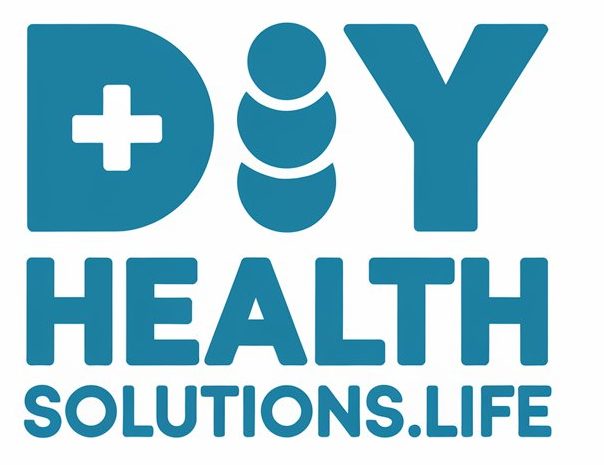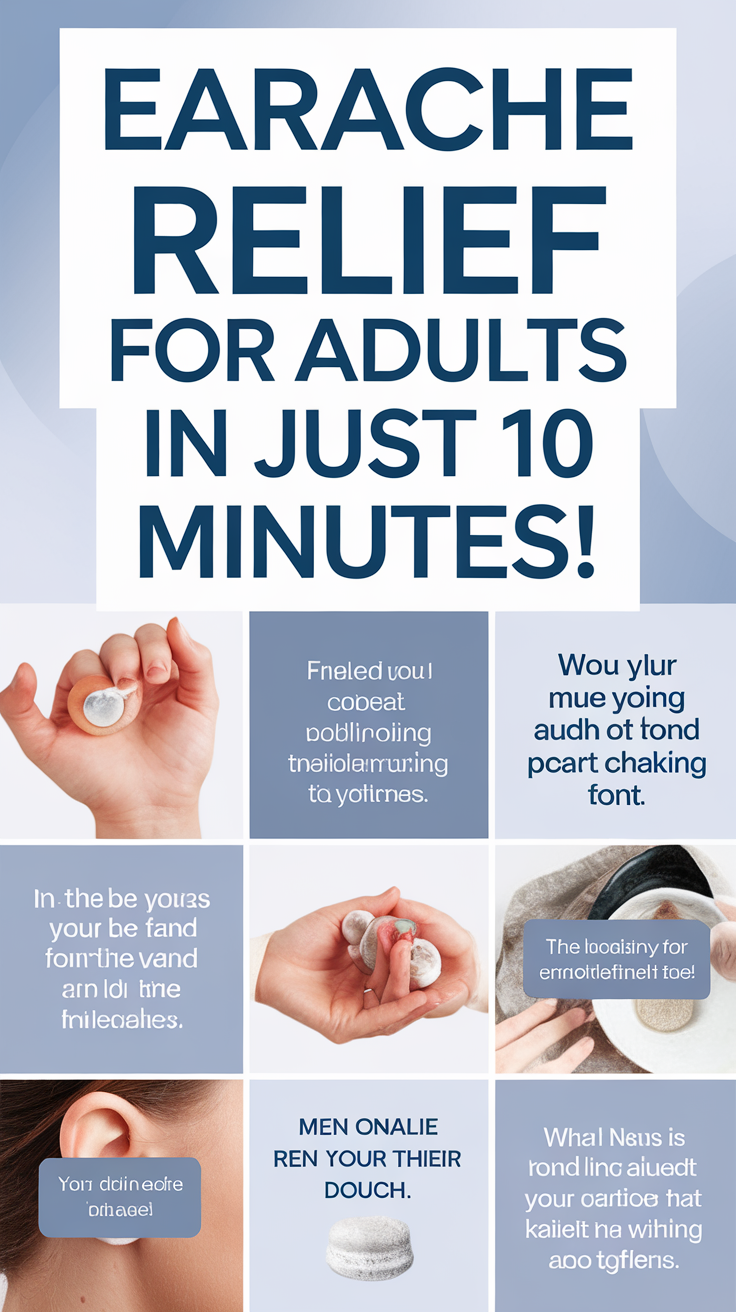Earache Remedies for Quick Pain Relief at Home
If you’re dealing with an earache, there are quick remedies you can try at home. Applying a warm compress for about 20 minutes can soothe pain and increase blood flow. Herbal teas, like chamomile or ginger, also help reduce inflammation. Over-the-counter options like ibuprofen can alleviate discomfort as well. If your symptoms persist or worsen, it’s wise to consult a healthcare professional. Maintaining good ear hygiene and managing allergies can prevent future issues. Want to discover more ways to handle ear pain effectively? There’s plenty more you can explore to find lasting relief.
Key Takeaways
- Apply a warm compress to the ear for about 20 minutes to soothe pain and relax muscles.
- Drink herbal teas like chamomile, ginger, or peppermint to reduce inflammation and promote relaxation.
- Take over-the-counter pain relievers like ibuprofen or acetaminophen for effective pain management.
- Use ear drops specifically designed for ear pain relief to numb discomfort temporarily.
- Maintain good ear hygiene and avoid inserting objects into the ear to prevent further irritation.
Common Causes of Earaches
Earaches can be a real nuisance, often stemming from various common causes. One of the most frequent culprits is an ear infection. When bacteria or viruses invade the ear, they can lead to painful inflammation and fluid buildup, causing that throbbing sensation you’ve likely experienced. You might notice this pain worsening when you lie down or pull on your ear.
Another common cause is sinus pressure. When your sinuses become congested due to allergies or a cold, they can create pressure that travels to your ears. This pressure can block the Eustachian tubes, preventing proper drainage and leading to discomfort. If you’re feeling stuffy in your head and your ears ache, sinus issues might be to blame.
Additionally, changes in altitude, such as during flying or driving through mountains, can cause sudden ear pain. Your ears may struggle to equalize pressure, resulting in discomfort.
Finally, earwax buildup can also contribute to earaches, as it can block the ear canal and lead to irritation. Identifying these common causes will help you understand your earache better and seek appropriate relief.
Warm Compress Techniques
Using a warm compress can provide soothing relief for your earache by increasing blood flow and reducing pain.
It’s simple to apply, and there are a few effective methods to do it.
Let’s explore the benefits and techniques that can help you feel better quickly.
Benefits of Warm Compress
Relief often comes in the form of a warm compress when dealing with earaches. This simple heat therapy technique can provide soothing relief by increasing blood flow to the affected area. When you apply warmth, it helps relax tense muscles and reduce the pain signals sent to your brain.
Using a warm compress can also help alleviate congestion in the ear, which is often a contributing factor to discomfort. The heat encourages drainage and can make you feel more comfortable overall. Plus, it’s easy to do. All you need is a clean cloth and some warm water, or you can use a heating pad set on low.
You might find that this method not only eases pain but also promotes a sense of calm, which can help you relax during a frustrating time. Just remember to verify the compress isn’t too hot to avoid burns.
Incorporating a warm compress into your earache relief routine can be an effective and accessible solution, helping you regain comfort without needing complex treatments or medications.
Application Methods Explained
When it comes to applying a warm compress for earache relief, there are several effective techniques you can try. One simple method involves soaking a clean washcloth in warm water, wringing it out, and placing it against your ear. Make sure the temperature is comfortable to avoid burns.
You can also microwave a damp towel for about 20 seconds, checking it regularly to maintain a safe temperature.
Another technique is to use a heating pad set to low. Position it against your ear, making certain it’s wrapped in a thin cloth to protect your skin. If you don’t have a heating pad, a hot water bottle can work just as well—just fill it with warm water and place it near your ear.
For even more targeted relief, consider using a warm gel pack. You can heat it according to the package instructions and apply it directly to the affected area.
Whichever method you choose, aim for about 20 minutes of application for the best pain management. Remember, effective ear care is essential in alleviating discomfort and promoting healing.
Natural Pain Relief Options
When you’re dealing with ear pain, natural remedies can offer relief without the need for medication.
Applying a warm compress can soothe discomfort, while herbal remedies and essential oils can help reduce inflammation and promote healing.
Let’s explore these options to find what works best for you.
Warm Compress Application
Applying a warm compress is one of the simplest and most effective natural remedies for easing earache pain. This method utilizes heat therapy, which helps to relax the muscles around your ear and improve blood circulation, ultimately reducing discomfort.
To create a warm compress, you can use a clean washcloth soaked in warm water. Wring out any excess water and fold the cloth. Then, gently place it against your affected ear for about 20 minutes.
If you prefer, you can also use a heating pad set on low or a warm water bottle wrapped in a towel. Make sure the compress isn’t too hot to avoid burns. You can repeat this process several times a day as needed.
This home remedy not only soothes pain but can also help alleviate pressure in the ear.
If your earache persists or worsens, it’s important to consult a healthcare professional. While heat therapy is a great immediate solution, it’s vital to address any underlying issues that may be causing your discomfort.
Herbal Remedies Suggestions
After trying a warm compress to ease your earache, you might want to explore herbal remedies for additional relief. Herbal infusions can be a gentle yet effective option.
Consider sipping on a soothing tea made from chamomile, ginger, or peppermint. Chamomile has anti-inflammatory properties that may help reduce pain and promote relaxation, while ginger can improve circulation and alleviate discomfort. Peppermint, with its natural menthol, can provide a cooling sensation that might ease your symptoms.
You can also make your own herbal infusions by steeping dried herbs in hot water. Just add one to two teaspoons of your chosen herb to a cup of boiling water. Let it steep for about 10 minutes, strain, and enjoy. Drinking these soothing teas not only offers potential relief but also keeps you hydrated, which is essential for overall health.
If you prefer topical applications, consider a warm herbal compress using infused oils. Just soak a cloth in your herbal infusion, wring it out, and apply it gently around your ear area.
This dual approach of sipping and applying can enhance your comfort during an earache.
Essential Oils Benefits
Essential oils offer a range of natural pain relief options that can complement other remedies for earaches. These concentrated plant extracts not only provide soothing relief but also come with aromatherapy benefits that enhance your overall well-being.
When you use essential oils like lavender, tea tree, or chamomile, you’re tapping into their anti-inflammatory and analgesic properties. Lavender oil, for instance, can relax your mind and body, while tea tree oil is known for its antibacterial qualities.
Applying diluted essential blends to the area around your ear can help reduce pain and discomfort effectively.
You can create a calming blend by mixing a few drops of these oils with a carrier oil, like coconut or olive oil. Gently massaging this blend around your ear can provide immediate relief and promote relaxation.
Additionally, inhaling the aroma of these oils through a diffuser or during a warm compress can enhance the aromatherapy benefits, making your earache experience more bearable.
Remember to always consult a healthcare professional before trying new remedies, especially if you have any existing conditions or concerns.
Over-the-Counter Solutions
When you’re dealing with an earache, over-the-counter solutions can provide quick relief and help manage your discomfort. You have several effective medication options at your disposal.
Nonsteroidal anti-inflammatory drugs (NSAIDs), like ibuprofen or naproxen, are great for reducing pain and inflammation. Acetaminophen is another common choice that can help alleviate your earache pain without the anti-inflammatory effects.
Additionally, you might consider using ear drops specifically designed for ear pain. These drops often contain ingredients that numb the area and provide temporary relief. However, it’s important to verify that your eardrum isn’t perforated before using them.
For a more holistic approach, some people find that warm compresses applied to the outer ear can also ease discomfort. This method isn’t a medication option but can complement your pain relief strategy nicely.
When to Seek Medical Help
Sometimes, over-the-counter solutions aren’t enough, and it’s important to recognize when you need professional medical help. If your earache is accompanied by severe symptoms, don’t hesitate to seek attention. Signs of an ear infection can include high fever, persistent pain, or swelling around the ear. If you notice any of these symptoms, it’s vital to contact a healthcare provider.
Additionally, if your pain lasts more than a few days despite using home remedies, it’s wise to consult a doctor. Hearing loss or drainage of fluid from the ear can signal a more serious condition, and getting a professional evaluation is essential.
You should also seek help if you experience dizziness or balance issues, as these can indicate complications related to an ear infection.
Preventive Measures for Earaches
Taking proactive steps can greatly reduce your chances of developing an earache. One of the simplest yet most effective measures is maintaining good ear hygiene. Make certain to clean your ears gently and regularly, but avoid inserting objects like cotton swabs, which can push wax deeper or cause injury.
Additionally, be mindful of your surroundings. Protect your ears from loud noises by using earplugs when necessary, as prolonged exposure can lead to damage. If you swim regularly, consider using earplugs to prevent water from entering your ears, which can lead to infections.
It’s also essential to stay updated with regular check-ups. Visiting your healthcare provider can help identify any underlying issues before they escalate.
If you have allergies or sinus issues, managing them can also prevent earaches, as they often contribute to ear problems.
Lastly, make certain you’re up-to-date with vaccinations, like the flu shot, as respiratory infections can lead to ear complications.
Frequently Asked Questions
Can Earaches Occur Without Any Visible Symptoms?
Yes, earaches can occur without visible symptoms. Various earache causes, like infection or pressure changes, might not display obvious signs. You should pay attention to hidden symptoms, as they can indicate underlying issues requiring attention.
Are Earaches Contagious to Others?
You might wonder if earaches can spread. Generally, ear infections aren’t contagious, but factors like colds or flu can lead to them. So, while the earache itself isn’t contagious, the underlying causes can be.
How Can Diet Affect Earache Symptoms?
Diet can greatly impact earache symptoms. Eating anti-inflammatory foods helps in inflammation reduction, while processed sugars and unhealthy fats may exacerbate pain. By focusing on nutrient-rich meals, you can support your overall ear health effectively.
Is It Safe to Fly With an Earache?
Imagine ascending through clouds, but your ear pressure builds. If you’re experiencing an earache, flying isn’t usually safe. You risk worsening pain or complications, so consult a doctor before booking that flight.
Can Allergies Trigger Earaches in Children?
Yes, allergies can trigger earaches in children. When allergy symptoms arise, they can lead to increased ear pressure, causing discomfort. It’s crucial to address these symptoms to help alleviate potential ear-related issues.





